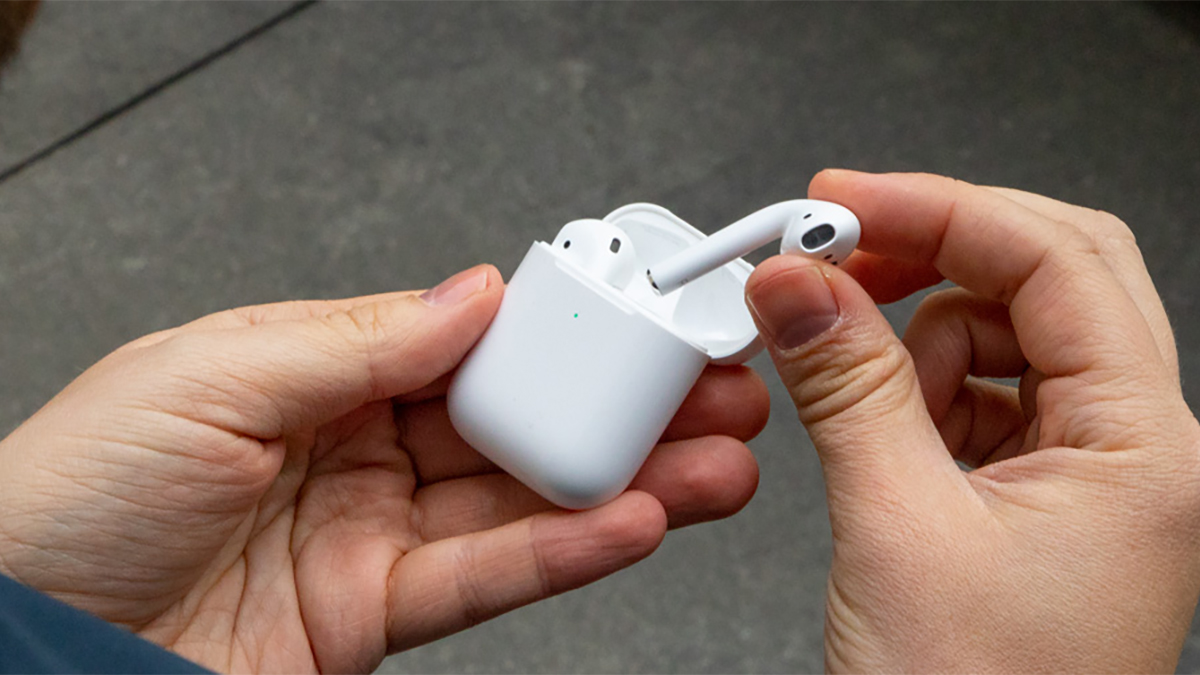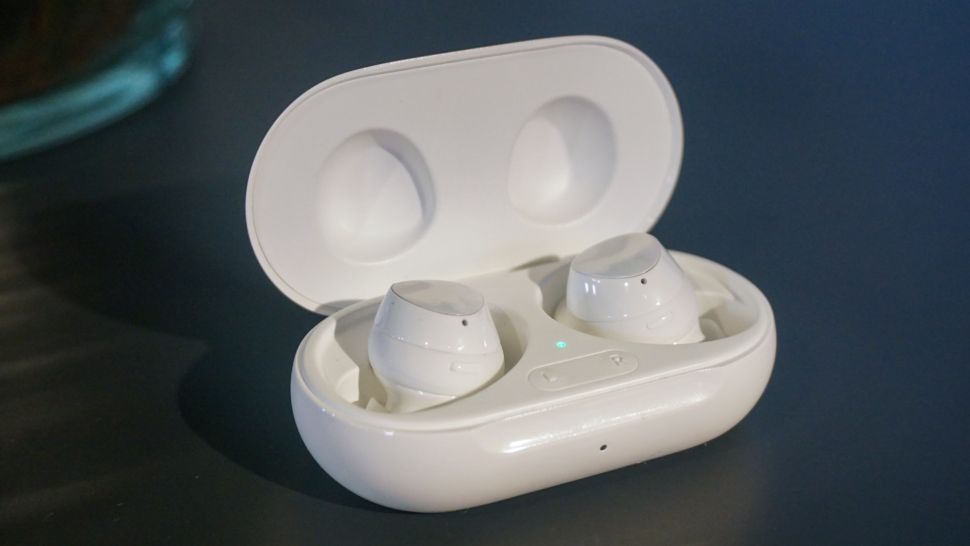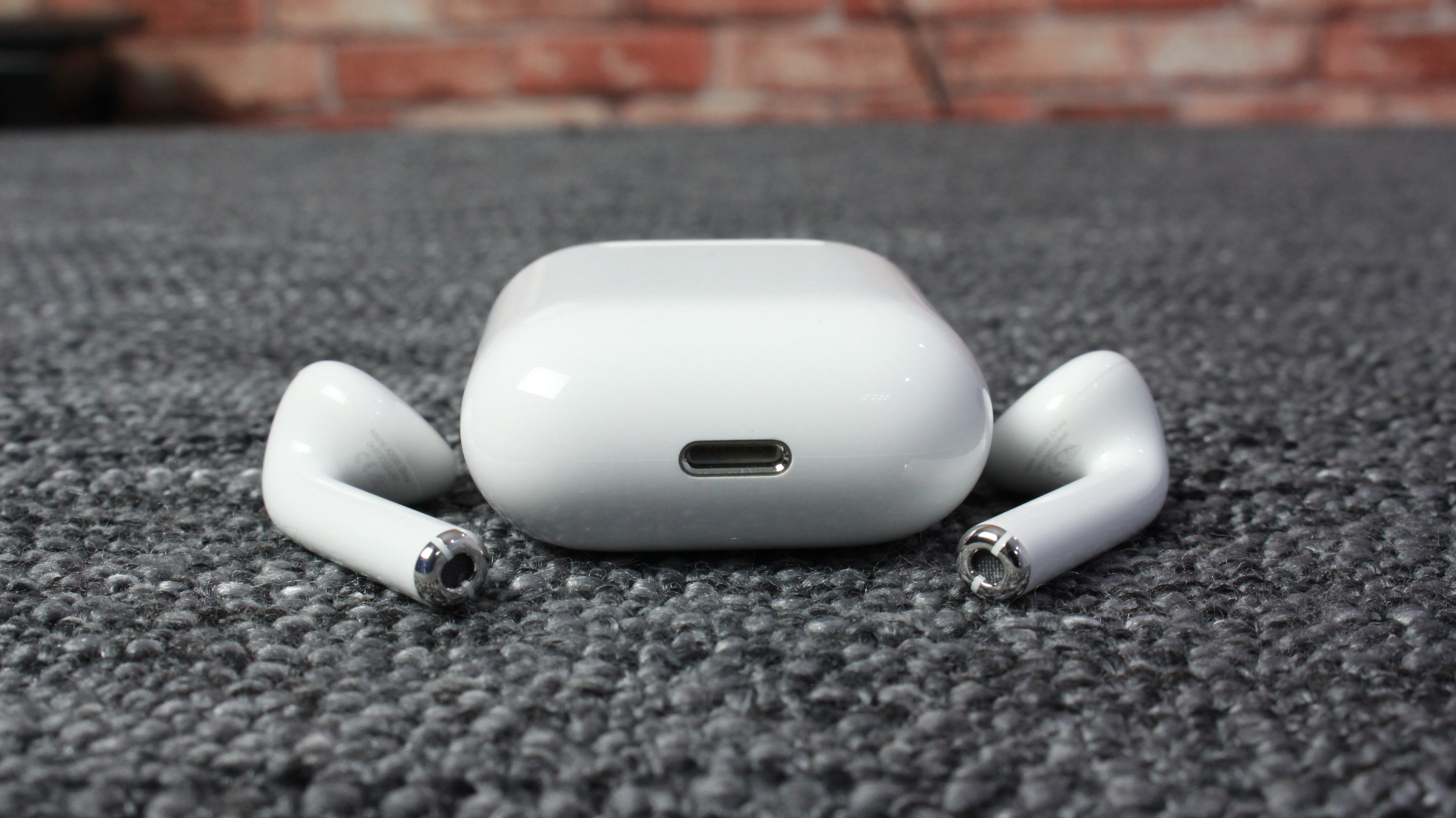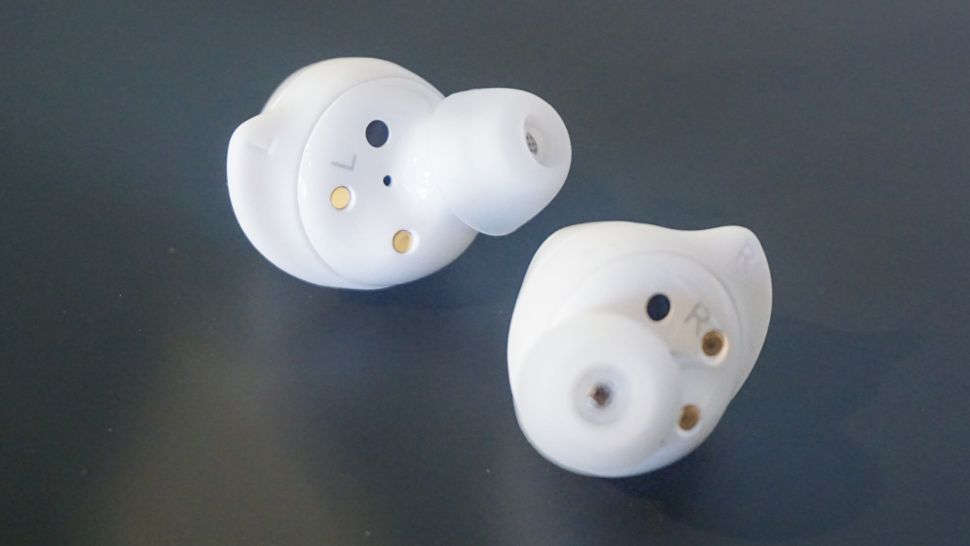Apple AirPods vs Samsung Galaxy Buds Plus: which are the best true wireless earbuds?
Apple and Samsung do battle once more

Sign up for breaking news, reviews, opinion, top tech deals, and more.
You are now subscribed
Your newsletter sign-up was successful
True wireless earbuds are getting better all the time, and while that means there’s more choice than ever before, it's getting increadingly difficult to pick the best model for your needs.
That’s particularly true when you’re comparing two second-generation wireless earbuds from the biggest tech brands on the planet: Apple and Samsung.
Apple and Samsung have long been locked in a smartphone rivalry for years, but it’s only recently that the companies have come up against each other in the world of personal audio.
The 2019 Apple AirPods were launched last year as an upgrade of the original Apple wireless earbuds, which hit the market in 2016. With Apple’s new H1 headphone chip, these updated buds offer "faster connect times, more talk time, and the convenience of hands-free Siri."
Since then Apple has also launched the noise-canceling AirPods Pro (and is said to be working on a cheaper version of these, the AirPods Pro Lite), but the 2019 AirPods are still the most popular of the brand’s true wireless earbuds.
Meanwhile, Samsung has been working on its own upgraded true wireless earbuds, the Samsung Galaxy Buds Plus, in a follow up the the company’s 2019 Galaxy Buds.
So, which second-gen true wireless earbud model is best for you? We’ve weighed up the pros and cons of each brand’s offering, and it’s a very close call.
Sign up for breaking news, reviews, opinion, top tech deals, and more.

Apple AirPods vs Samsung Galaxy Buds Plus: price
The Apple AirPods (2019) cost $159/£159/AU$249 with the standard charging case, and $199/£199/AU$319 with the new Wireless Charging Case bundled in.
At $149.99 / £159 / AU$299, the Samsung Galaxy Buds Plus are a little cheaper than the Apple AirPods – and it’s worth bearing in mind that the Galaxy Buds Plus come with a wireless charging case as standard, unlike the AirPods.
You shouldn’t take those prices as gospel, though: as Apple’s earbuds are a little older than the Galaxy Buds Plus, you can usually find decent AirPod deals that bring the price down by at least $20 / £20.
These prices are about average for true wireless earbuds, which can cost as little as $30 / £30 and as much as $650 / £500 (we’re looking at you, Klipsch). For reference, the best true wireless earbuds of 2020, the Sony WF-1000XM3, cost $230 / £220 / AU$400, though you can usually find them cheaper if you spot a great headphones deal.

Apple AirPods vs Samsung Galaxy Buds Plus: design
The design of the Apple AirPods is very distinctive, with true wireless earbud manufacturers the world over trying to emulate it in their own models.
This distinctive style, which you will probably either love or hate, essentially takes the classic EarPod design and cuts the cables, leaving the stem of the earbud to protrude from the ear. This is a design that’s endured since the original AirPods were launched in 2016, and even though the stems are a little shorter in the AirPods Pro, it looks like they’re here to stay for the foreseeable.
True to that somewhat rigid Apple design, you won’t find the convenience of replaceable silicone eartips, and although they felt relatively snug when we tested them, we’d think twice before using the Apple AirPods for working out. That’s something the company has addressed with the newer AirPods Pro, which we think are more suitable for using as a pair of running headphones, thanks to the inclusion of silicone eartips.
The Samsung Galaxy Buds Plus on the other hand, have a more ‘classic’ true wireless earbud design (if such a thing exists), with all the tech built into their housing, unlike the AirPods (2019), which pack all their tech into the stems.
The design of these buds is largely the same as their predecessors, the Galaxy Buds – it’s interesting that both companies haven't messed around with the design of their second-gen true wireless earbuds, choosing instead to focus on upgrading the tech within.
Samsung’s earbuds are light and dainty, and feel pretty secure thanks to the inclusion of rubber wingtips. Unlike the Apple AirPods, you have a range of colors to choose from, including pearlescent white, black, and light blue – and in our opinion, they’re the better-looking of the two, though that does come down to personal taste.
Both earbuds have touch controls, which means you can summon your phone’s voice assistant, play/pause your music, and answer and end calls.
While the AirPod uses touch-sensitive housings that require a light touch to activate, the Samsung Galaxy Buds Plus feature physical buttons. Using these can be slightly uncomfortable at first, as pushing the button pushes the earbuds further into the ear canal.
Both the AirPods and the Galaxy Buds draw battery from a pillbox-like charging cases, which are small enough to slip into your pocket. You’ll find a row of LEDs on the outside of the AirPods’ charging case, which indicate how much battery you have left; a single LED on the outside of the Galaxy Buds Plus’ charging case glows red, yellow, or green for the same purpose.

Apple AirPods vs Samsung Galaxy Buds Plus: connectivity
In terms of wireless connectivity, the Samsung Galaxy Buds Plus come with support for Bluetooth 5.0, while the AirPods are still using the much older Bluetooth 4.2 – that means you might find that Samsung’s earbuds are less prone to connection dropouts (though we didn’t experience this issue frequently with either model).
Unfortunately, neither the Samsung Galaxy Buds Plus nor Apple AirPods support higher-end audio codecs like aptX, or aptX Low Latency, so you may find there’s a tiny bit of lag when it comes to watching video using both true wireless earbud models.
The AirPods also have the benefit of Apple’s H1 chip, which is said to improve connectivity and speed up pairing times. If you’re using an iPhone, an option to pair the AirPods will appear on your phone screen as soon as you open the charging case, as well as the battery status of the AirPods and the charging case.
Both the Samsung Galaxy Buds Plus and the Apple AirPods support multi-pairing, allowing them to connect to several devices without needing to re-pair them every time you go to use them.
Apple AirPods vs Samsung Galaxy Buds Plus: battery life
The Apple AirPods contain five hours of battery life in the buds themselves, and the charging case offers a further 20 hours of power on top of that.
The Samsung Galaxy Buds Plus on the other hand, contain 11 hours of charge in the earbuds, while the charging case provides an additional 11 hours, bringing the total battery life to 22 hours.
That 11-hour battery life is pretty long for true wireless earbuds – but for the charging case, it’s not a huge amount of battery. When it comes to the AirPods and the Galaxy Buds, you’re choosing between the ability for multiple charges on the go, and a larger internal battery in the buds themselves.
Both buds are capable of wireless charging, though as we mentioned, if you get the AirPods with the Wireless Charging Case, this will cost you around $40 more than if you bought them with the standard charging case.
Samsung puts no such premium on its own wireless charging case, which comes with the Galaxy Buds Plus at no extra cost.
Both the Apple and Samsung wireless charging cases can be used with a Qi-compatible charging mat, but the Samsung Galaxy Buds Plus have another trick up their sleeve in the form of Wireless PowerShare.
If you have a compatible Samsung phone like the Galaxy S20 or the Galaxy S10, you can set up two-way wireless charging and place your headphones on the rear of the device to get them charged up as well. It’s a cool feature that could easily swing your vote towards the Galaxy Buds Plus if you’ve already invested in a Galaxy smartphone.

Apple AirPods vs Samsung Galaxy Buds Plus: audio quality
In terms of audio quality, the AirPods have a lively, powerful presentation, although they can sound slightly harsh when it comes to higher-frequency sounds, and they aren’t the bassiest earbuds on the market.
The original Galaxy Buds were a lot bassier than the AirPods, but the Galaxy Buds Plus have a more balanced sound than their predecessors, dialing back the bass and upping the mid and treble frequencies.
That means, while both earbuds provide a good level of detail and generally sound quite good, neither are particularly suitable for bassheads who crave a thumpy low end – if that sounds like you, it’s worth checking out the Beats Powerbeats Pro instead.
Similarly, neither of these earbuds are the best-sounding on the planet – for real audiophile sound quality, you’ll need to look to true wireless earbuds like the Cambridge Audio Melomania 1.
You won’t find mod-cons like noise cancelation in these earbuds either, although that’s not entirely surprising based on the price. If you want to block out annoying environmental sound, you should check out the Sony WF-1000XM3 or the AirPods Pro; right now, none of Samsung’s true wireless earbuds come with noise-canceling tech built in.
Apple AirPods vs Samsung Galaxy Buds Plus: verdict
Once upon a time, we would have advised you to go with the ecosystem you already use; if you have an iPhone, opt for the AirPods, and if you have a Samsung phone, go for the Galaxy Buds Plus.
That’s still somewhat true when it comes to the AirPods, which you may find pair more quickly with iPhones than other models, but the Samsung Galaxy Buds Plus are more agnostic than their predecessors, and can be comfortably used with just about any device.
Wireless PowerShare is one reason to go for the Galaxy Buds Plus if you already have a compatible smartphone, though.
With similar price points, sound profiles, and battery life, it’s tricky to wholeheartedly recommend one of these earbud models over the other. That said, there are some situations where you might want to plump for the AirPods over the Galaxy Buds Plus, and vice versa.
Love Apple’s sleek, distinctive design? Go for the AirPods. Prefer the security of rubber wingtips and the option to show off your personality with a choice of colors? The Samsung Galaxy Buds are your best bet.
Neither of these models are the last word in true wireless audio, and you can find better-sounding, longer-lasting true wireless earbuds on the market, sometimes for lower prices, too.
That’s why it’s sometimes well worth looking away from the big tech giants like Apple and Samsung and spending a little time getting to know dedicated audio brands like Cambridge Audio, Lypetek, Klipsch, and Audio-Technica – you’ll probably end up getting better quality true wireless earbuds for your money if you do.
- Read our full Apple AirPods review
- Or, check out our Samsung Galaxy Buds Plus review
- Why 2020 is the year you should finally buy some true wireless earbuds

Olivia was previously TechRadar's Senior Editor - Home Entertainment, covering everything from headphones to TVs. Based in London, she's a popular music graduate who worked in the music industry before finding her calling in journalism. She's previously been interviewed on BBC Radio 5 Live on the subject of multi-room audio, chaired panel discussions on diversity in music festival lineups, and her bylines include T3, Stereoboard, What to Watch, Top Ten Reviews, Creative Bloq, and Croco Magazine. Olivia now has a career in PR.